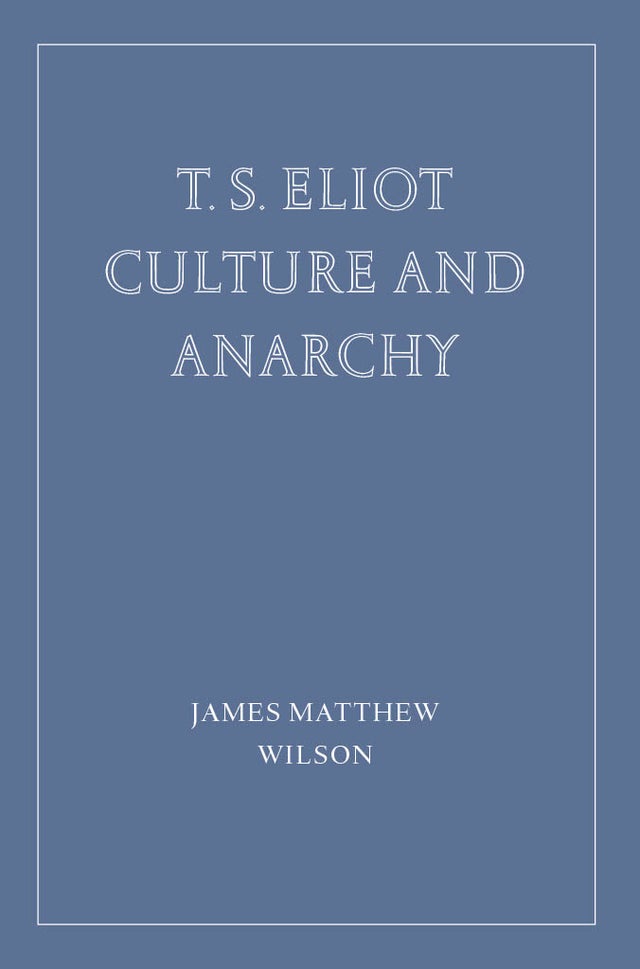- Our Books
- >
- Monographs
- >
- T.S. Eliot: Culture and Anarchy, by James Matthew Wilson
T.S. Eliot: Culture and Anarchy, by James Matthew Wilson
From the beginning of his career as a poet and critic, T.S. Eliot was associated with his Victorian predecessor, Matthew Arnold. In this essay, an introduction to the life and work of Eliot, James Matthew Wilson argues that Eliot sought to correct and deepen Arnold throughout his career. Whereas Arnold celebrated poetry as both a substitute for religion and a way of maintaining moral and cultural standards in an increasingly secular and anarchic age, Eliot recognized that nothing could be a substitute for anything else. Religion was not to be contained within culture as one object among others. Rather, culture was itself an expression of the sacred realm, which transcends it. In his response to Arnold, Eliot insists that far from preparing us for a modern age where all will be reduced to the “natural,” it is the poet's task to recover the “supernatural” and to give critical and poetic expression to the sacred in our day. Although he could not have known it, from the beginning Eliot's career led him down a path that would culminate in the greatest religious poem of the twentieth century, Four Quartets.
James Matthew Wilson is the Cullen Foundation Chair in English Literature and the founding director of the MFA program in Creative Writing at the University of Saint Thomas. The author of eleven books, his most recent collection of poems, The Strangeness of the Good (2020), won the poetry book of the year award from the Catholic Media Awards. The Dallas Institute of Humanities awarded him the Hiett Prize in 2017; Memoria College gave him the Parnassus Prize, in 2022; and the Conference on Christianity and Literature twice gave him the Lionel Basney Award. He serves as poet-in-residence of the Benedict XVI Institute, editor of Colosseum Books, and poetry editor of Modern Age magazine.
Publication Date: March 25, 2024


